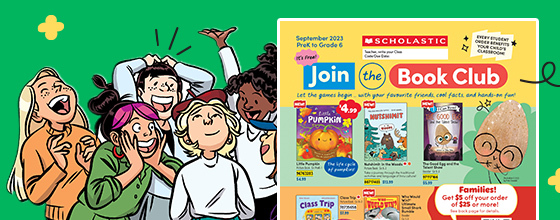Most parents with independent readers would agree that the day their kids started reading on their own, it was amazing — like a switch just flipped on! If you’re the parent of a preschooler or an early reader, there’s plenty you can do to get that switch in the “on” position for your own child.
Of course, reading is a skill that develops at different times for each child. And even though it may seem to happen overnight, the ability to read usually comes to kids after years and years of “pre-reading.” Things like the instructions kids receive at school, how parents help with reading at home, and even a child’s own passion for learning can all play a part in how and when a child learns to read.
To help you make sure your child is on the right path, here is a general roadmap of literacy skills by age and what to expect on the path to reading. Every child and school is unique, but after reading this, you’ll understand general landmarks to look for, and gain some useful tips on how to help instill a lifelong love of literacy in your child.
Skills They’re Working On
At this stage, kids are typically working on recognizing each letter in the alphabet, and their corresponding sounds. With their developing motor skills, it’s common for kids at this age to have trouble forming word sounds like “f”, “r”, “s”, and “th.”
What They’re Learning in School
A major skill that needs to be established at this age is phonemic awareness, says Andrew DiNapoli, director of curriculum at the Baldwin School District in Long Island, New York. “With phonemic awareness, you’re not using any print,” he says. “You’re asking students to make a connection between sounds and letters.” This might involve asking students what sounds they hear in the word “big” without them seeing the word, or clapping out syllables in a longer word.
Each classroom is different, but preschool teachers will generally work on this and other pre-reading skills such as repeating rhyming words, using flashcards to recognize sight words, and of course, plenty of reading aloud to kids.
How You Can Support Them at Home
There are plenty of fun and easy ways to help your child continue to grow these skills:
Skills They’re Working On
While children this age may still need help decoding trickier words, they typically begin to read simple sentences and early reader books on their own. They’re also developing their reading comprehension and writing skills. For some kids, pronunciation of tricky sounds like “r” may still be a work on progress.
What They’re Learning in School
DiNapoli says a school’s approach to literacy education will vary, but in general, kids this age are exposed to many different strategies to help them master their reading and writing skills. Reading with a partner, reading solo, interactive writing activities, learning and applying different decoding strategies to text, and playing word games to further understand word sounds (i.e. “If we replace the “m” in “mop” with “b”, what’s the new word?”) are just a few things your child may be covering in the classroom.
Reading homework at this age may be a list of weekly sight words or daily reading. Worksheets that cover reading may also be a part of homework.
How You Can Support Them at Home
Whether your child has assigned reading every night or none at all, you can support their budding reading skills by helping them find books that both speak to their interests and are appropriate for their reading level.
Skills They’re Working On
By the third grade, kids are likely reading independently and can decode most words on their own. They’re gaining many new skills — for instance, they’ll be able to summarize what they read and use text to support their ideas. Writing skills will start to mature, too, as sentences turn into paragraphs. They’ll also use their new language skills to help them form deeper relationships with friends.
What They’re Learning in School
Around the third grade, schoolwork starts to shift from learning to read to reading to learn. Kids are expected to have mastered the basic concepts of decoding sounds and words. They use these reading skills to study more complex topics like history, science, social studies, and literary themes.
While context clues can help younger kids identify new words, this may be harder to do as school topics get more complex, says DiNapoli. “This is such a great age for students to start understanding different terms,” he says. Parents can help by increasing the volume of both fiction and nonfiction books kids have access to outside of school.
How You Can Support Them at Home
By this age, most kids have developed strong independent reading skills, which translates into stronger language skills as well. They may be able to infer when you’re not having a great day and start to form stronger emotional relationships with their peers.
However, the Scholastic Kids & Family Reading Report found that kids at this age start to lose interest in reading just for fun. Only 35 percent of 9-year-olds report reading 5 to 7 days a week, compared to 57 percent of 8-year-olds.
What’s more, fewer 9-year-olds think reading for fun matters, with only 57 percent saying they think reading books for fun is extremely or very important, compared to 65 percent of 8-year-olds. The number of kids who say they love reading also drops as kids get older, from 40 percent of 8-year-olds to only 28 percent of 9-year-olds claiming a passion for books.
What They’re Learning in School
Reading homework may feel more like “work” now. While each teacher may handle assignments differently, DiNapoli notes that workbooks and reading logs (or having to read for a certain amount of time) are all common homework assignments at this age.
How You Can Support Them at Home
Originally published by Scholastic Parents on April 25, 2023. Versioned for Scholastic Canada.
 Book Clubs
Book Clubs
Scholastic Book Clubs helps kids discover the joy of reading. Together, we put can’t-miss books into kids’ hands—at can’t-miss prices, while also giving back to a teacher's classroom!
Visit us online Book Fairs
Book Fairs
Bookjoy or bust! Millions of children have discovered books—and a lifelong love of reading—at a Scholastic Book Fair.
Visit our site